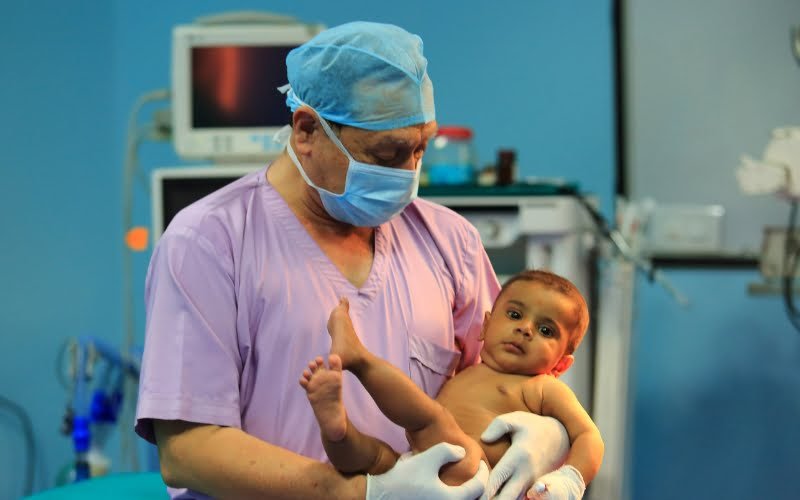
About Paediatrics
Paediatrics is the branch of medicine dealing with the health and medical care of infants, children, and adolescents from birth up to the age of 18. The word “paediatrics” means “healer of children”; they are derived from two Greek words: (pais = child) and (iatros = doctor or healer). Paediatrics is a relatively new medical specialty, developing only in the mid-19th century. Abraham Jacobi (1830–1919) is known as the father of paediatrics.
What Does A Paediatrician Do?
A paediatrician is a child’s physician who provides not only medical care for children who are acutely or chronically ill but also preventive health services for healthy children. A paediatrician manages the physical, mental, and emotional well-being of the children under their care at every stage of development, in both sickness and health.
Aims Of Paediatrics:
The aims of the study of paediatrics is to reduce infant and child rate of deaths, control the spread of infectious disease, promote healthy lifestyles for a long disease-free life and help ease the problems of children and adolescents with chronic conditions.
Paediatricians Diagnose And Treat Several Conditions Among Children Including:
- Injuries
- Infections
- Genetic and Congenital conditions
- Cancers
- Organ diseases and Dysfunctions

Paediatrics is concerned not only about the immediate management of the ill child but also long-term effects on quality of life, disability and survival. Paediatricians are involved with the prevention, early detection, and management of problems including:-
- Developmental delays and disorders
- Behavioral problems
- Functional disabilities
- Social stress
- Mental disorders including depression and anxiety disorders
How Does Paediatrics Differ From Adult Medicine?
Paediatrics is different from adult medicine in more ways than one. The smaller body of an infant or neonate or a child is substantially different physiologically from that of an adult. So, treating children is not like treating a miniature adult.
Congenital defects, genetic variance, and developmental issues are of greater concern to paediatricians than physicians treating adults. In addition, there are several legal issues in paediatrics. Children are minors and, in most jurisdictions, cannot make decisions for themselves. The issues of guardianship, privacy, legal responsibility and informed consent should be considered in every paediatric procedure.
Subspecialties In Paediatrics:
- Paediatric cardiology
- Critical care medicine
- Endocrinology
- Gastroenterology
- Haematology
- Neonatal medicine
- Nephrology
FAQs
- What if my child is not hitting development milestones at the typical ages?
All children are different and grow at different paces. Some children mature in bursts, some at a steady pace. However, if you have questions about your child’s development, consult with our pediatrician today.
- I have questions about immunizations. Who should I talk to?
Our pediatrician is your best resource. Be open to your questions. Our pediatrician knows what’s best for your child and respects your caution.
- How often do my kids need checkups?
After the first year, healthy children, without ongoing conditions or other issues, can typically graduate to once or twice a year. However, this is only a basic rule. If you have any additional questions or concerns about your child’s health? Talk with our pediatrician today.
- Is there an Emergency Room in Khetarpal hospital?
There are emergency services available round the clock to meet the emergency medical needs of children up to age 17. We have specialized doctors and staff that are trained in both pediatric and emergency medicine.

